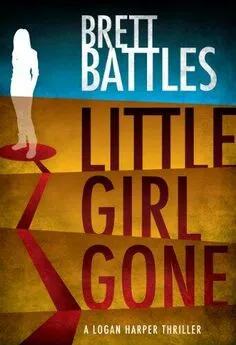Brett Battles - Shadow of Betrayal
- Название:Shadow of Betrayal
- Автор:
- Жанр:
- Издательство:неизвестно
- Год:неизвестен
- ISBN:нет данных
- Рейтинг:
- Избранное:Добавить в избранное
-
Отзывы:
-
Ваша оценка:
Brett Battles - Shadow of Betrayal краткое содержание
Shadow of Betrayal - читать онлайн бесплатно полную версию (весь текст целиком)
Интервал:
Закладка:
Five minutes later, she reached a large avenue that went east and west through the city. She started to cross, then stopped abruptly and pulled back into the doorway of a darkened building.
She’d seen headlights coming from the east, and heard the unmistakable sounds of several army vehicles. She peeked around the edge of the wall to get another look. There were at least five vehicles: three jeeps and a couple of trucks with loud diesel engines and transmissions that ground in protest of their unskilled drivers.
She estimated they would pass by her position in less than a minute. Though she knew any delay could be crucial, crossing now would be suicide. They’d spot her the second she stepped onto the street. She had no choice but to wait until they passed.
But her current position was only slightly better than standing still in the middle of the road. If one of the soldiers decided to aim a light in her direction, she would be discovered. So she slipped out of the doorway and stayed tight to the building as she looked for someplace better. She found it half a block down, an alley no more than four meters wide between a store and what looked like an abandoned restaurant.
Signs on the outside walls of the store advertised sodas and cigarettes. Like all the other buildings, it was closed up tight, but as she turned down the alley, she noticed light seeping out of one of the back windows. Marion guessed the shop provided not only a means of income for the owner, but also a place to sleep.
About a dozen meters down the alley was a pile of rotting wooden crates. She slipped behind them, crouching down so she was hidden from anyone passing by on the road. She was able to move one of the boxes a couple centimeters to the right, creating a peephole through which she could keep an eye on the army caravan as it drove by.
The rumbling of the trucks got louder and louder until the street in front of the shop grew bright from the vehicles’ headlights. She watched first as two jeeps passed, then the trucks, and finally the last jeep. Each had been full of young soldiers dressed in dark fatigues and berets.
Even with Marion’s limited vision, it looked to her like all the men were armed with rifles. She had yet to be able to figure out what distinguished one type of rifle from another. To her, they all produced the same result.
As the rumble of the convoy receded, Marion stood up and started back toward the street, intent on making up for lost time.
“Qui étes-vous? Que voulez-vous?”
Marion froze. The voice had come from behind her. It was male, deep and urgent.
“Répondez-moi. Que faites-vous ici?”
She raised her hands. “Please,” she said. “I’m just trying to get home.” Though French was her native tongue, she answered in English. In the unlit alley, her olive-colored skin might look darker than it really was, so she wanted to emphasize the fact that she was a foreigner.
She heard the man take a step closer to her. “Are you American?” he asked, his English slow and deliberate.
“Canadian,” she said.
“Turn. Slow.”
She did what he asked.
When she saw him, she realized he was older than she’d thought. His hair was gray, his body thin and stooped. He held a pistol, and was pointing it at her, though the tremor in his hands moved the barrel a half an inch in either direction every few seconds.
He wasn’t alone, either. Behind him, peeking around his hip, was a young girl. She looked more curious than scared.
“Why do you hide behind my shop?” The man seemed to think hard before saying each word, as if he was reaching back to knowledge he hadn’t used in decades.
“The soldiers,” she said. “I didn’t want them to find me out after curfew.”
“Not safe. You should not be out here.”
The little girl smiled at Marion. It was doubtful she could understand a word that was being said.
“I told you. I’m just trying to go home,” Marion said.
“No car? Alone?”
Marion looked at him for a moment, then shook her head.
“You will be killed,” the man said, but he lowered his own gun, indicating the bullet would not come from him. “Wait until morning.” He nodded at the spot she had been hiding in when the convoy passed. “There. You will be safe. I will not… give you trouble.”
“I can’t,” she said. “I have to go.”
The man’s eyes grew distant, then he said, “Wait.” Only this time she knew he didn’t mean for her to hide out in the alley all night.
He turned and walked quickly away, disappearing behind the back of the shop. The little girl followed him, though more reluctantly, stealing glances back at Marion, until she, too, was gone.
Though Marion felt the need to continue her journey, she did as the old man asked. Less than a minute later he was back, this time alone. The pistol he’d held in his hand had been replaced by a rectangular box that tapered at one end and fit snug in his palm.
He hesitated a moment, then held it out to her. She took it, unsure what to do with it. Without taking it from her hand, the old man turned the device so that the tapered end lay across her palm. In this direction, her thumb fell naturally across the top of the box and rested on top of a square button.
“Touch someone with this end,” the man said, pointing at the wide edge of the box. “Push button. Electric.”
“You mean shock?” she asked. “Like a Taser?”
He looked at her like he hadn’t understood what she was asking.
“Electric. Electric,” he said, then he shook his body, imitating the results.
“I can’t take this from you,” she told him, holding it back out.
“Bring it back,” he said. “After the sun comes up.”
She took a breath, then nodded and said, “Thank you.”
Without another word, he walked back the way he’d come. Marion then turned and retraced her steps to the street.
For thirty minutes Marion worked her way through half-paved side streets and dirt paths, avoiding the main roads altogether. Any time there was even the slightest sound, she would stop and wait until she was sure there was no threat. In her right hand she held on tight to the Taser as if it were a talisman guaranteeing her passage through the city.
It seemed to work, too. She had seen no one else on her trip. And while she had heard a few more military vehicles, they had been distant and of no concern.
That was until she turned onto the street where the orphanage was located.
There were two vehicles double-parked in front of the three-story building that housed the orphanage—a jeep and a sedan, both with headlights on, and drivers sitting at the ready. Two other soldiers stood near the open door of the building.
She was three blocks away, so they hadn’t noticed her. But if she continued on, she wouldn’t even make it to the next block without being spotted. There weren’t enough cars to hide behind, and, in the curfew-induced stillness, any movement would draw attention.
She doubled back, then went two blocks farther away before cutting over to the dirt alley that ran behind the orphanage. Water ran down the center of the road, the last remnants of the storm that had passed through earlier that evening. Other than that, the road was quiet. There were no soldiers anywhere in sight.
Marion made her way past run-down and bullet-strewn buildings that had survived coup after coup and would undoubtedly survive at least one more. The orphanage building was as old as the others, but better cared for, someone having taken the time to slap concrete patches over the worst damage. From her previous visits, Marion knew the ground floor was taken up by a small office, a kitchen, and a combination dining room/meeting place. On the second and third floors were rooms for the staff, dorms for the children, and a few makeshift classrooms.
Roslyn’s Place, that’s what everyone called it. But it had no official name. Nor was it sponsored like places in other parts of the city. Those orphanages had the backing of large religious agencies or other NGOs—non-governmental organizations.
Roslyn’s Place had no backing. It was just something that had been started by a Swiss woman who had visited the country twenty years earlier and had never left. Frau Roslyn had intended it as a facility where children could come, feel safe, and perhaps even learn something during the day. But when she realized that many of the kids who came to her had nowhere else to go in the evenings, she began letting them stay. It wasn’t long before the occasional baby or toddler would be left at the front door. Roslyn could have turned them over to an official facility, but she never did. She felt the responsibility had been given to her, so she had no intention of passing it on.
Now, the first thing she did every morning was open the front door and look down.
With the help of a few locals whom Roslyn paid out of her modest savings, she did it all on her own. When Marion had stumbled upon Roslyn’s Place two months earlier, she’d made it her personal mission to do what she could to help out. Using her position within the UN, she’d been able to arrange for a shipment of school supplies, and had even convinced a European-based aid organization to send packages of nonperishable food every few weeks. But racing through the city in the middle of the night on foot was not something she had ever foreseen as part of her commitment.
Marion ducked down and passed below the darkened first-floor windows, making her way over to the dingy door on the far side. It was the back entrance into the kitchen, where most of the supplies were brought in. She put an ear to the wooden surface and listened. The room beyond was quiet. She grabbed the knob and gently turned it. As Frau Roslyn had promised on the phone, the door was unlocked. Marion had been warned that the hinges were not the quietest, so she slowly worked the door open just enough so she could squeeze inside.
Low light seeped into the kitchen from the window near the door. But it was more than adequate for Marion’s night-adjusted eyes to see. She skirted past an old wooden table covered with pans and boxes and bags, and tiptoed over to the doorway that led out into the dining hall. There was no actual door, just a flower-print drape covering the opening. At serving time, it would be moved out of the way and held in place by a hook mounted on the wall.
Marion pulled the curtain back just enough to peer into the other room. The dining hall was also unlit, but like the kitchen, there was more than enough illumination shining through the windows from outside. The tables were empty, and the ragtag group of chairs and benches were all neatly in place. Everything ready and waiting for the morning meal.
Marion pushed the curtain out a little so she could look to her right toward the front of the building, and immediately caught her breath. There was someone standing against the wall only a few feet away. Her first instinct was to let go of the drape and escape out the back door into the night. But she didn’t move. Frau Roslyn’s words from her rushed call earlier came back to Marion.
“They’re coming back,” the old woman had said.
The call had woken Marion. “Who?” she’d asked, trying to focus.
“It’s them. The ones we talked about. They’re making the rounds again,” Frau Roslyn said. “I just got the call. They’ll be here soon, I’m sure of it.”
“You’ve nothing to worry about. Last time they only stayed a few minutes and then they were gone.”
“We didn’t have what they were looking for last time.”
It took a second for Marion to realize what Frau Roslyn was saying. When she did, she could feel the blood drain from her face. “Iris.”
Читать дальшеИнтервал:
Закладка:








